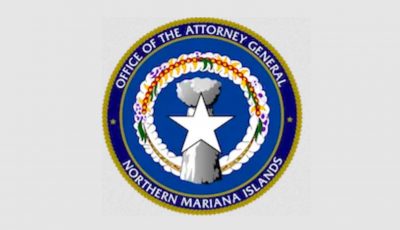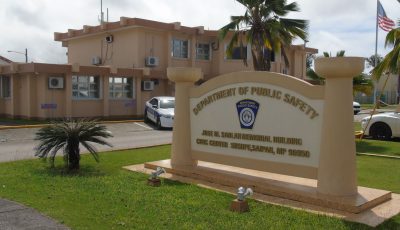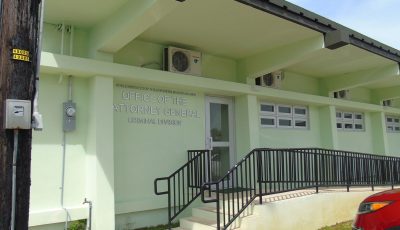Ex-Labor chief: No basis for OAG motion for clarification
Ex-Labor chief Edith Eleanor DeLeon Guerrero insists the Superior Court should reject the Office of the Attorney General’s motion for clarification on Associate Judge Joseph N. Camacho’s interpretation of the terms “vehicle owned” or “leased” since the OAG’s request fails to provide a legal basis.
DeLeon Guerrero, through assistant public defender Cindy Nesbit, said the court should also deny the OAG’s motion as the government lacks standing, as any interpretation of the statute in question will not affect the proceedings in the traffic case filed against her.
In the alternative, DeLeon Guerrero said Camacho should uphold his earlier interpretation of 1CMC Section 7406, which regulates the use of government vehicles.
Nesbit said Camacho’s earlier interpretation that a lease agreement must confer rights to the possessor for 12 months or more is the correct interpretation of the Government Vehicle Code.
Last Oct. 1, 2016, DeLeon Guerrero was cited for three violations in her use of a government vehicle. She pleaded not guilty. She said it was a rental car and not government property.
Each of three charges is punishable by a fine of up to $500 and/or three days of imprisonment.
According to court documents, the traffic citation was issued against DeLeon Guerrero on Oct. 16, 2016, at 3:39pm in the parking lot of the Happiness Chinese Restaurant in western Garapan.
DeLeon Guerrero was the driver of a red five-door Toyota car with license plate ACU 788. The car is registered to Marfega Trading Co. Inc.
DeLeon Guerrero’s bench trial was supposed to start last June 7, but Camacho vacated it because of the OAG’s motion for clarification. Assistant attorney general Jonathan Robert Glass Jr. had cited a prior traffic case against former Education commissioner Dr. Rita Aldan Sablan. In April 2016, Camacho acquitted Sablan of same three charges that were filed against DeLeon Guerrero.
The judge had concluded that the car Sablan was driving was not a “government vehicle” because it was leased for just 15 days, not the 12 months provided under the law.
In Sablan’s case, the government appealed, but the CNMI Supreme Court dismissed it and sanctioned the Commonwealth because the appeal was deemed frivolous.
Glass said that in Sablan’s case, Camacho defined a vehicle owned or leased according to the definition in 9CMC 1103(e).
Glass said the government believes this is not the correct reading of the statutes, and creates a loophole wherein a government entity can lease a vehicle for 364 days, have the government pay for all of it (gas, insurance, repairs, etc.), but then not qualify it as a “government vehicle” for purposes of enforcing the code, and thereby allow government employees to use this vehicle as a personal vehicle on the government’s dime.
In DeLeon Guerrero’s response last week to the government’s motion for clarification, Nesbit said the government does not present a single rule, statute, or case giving it the legal authority to bring its motion.
Rather, Nesbit said, the government simply asks the court to reinterpret a prior decision. “Under these circumstances, the court is under no obligation to consider the government’s motion,” Nesbit said.
She said the agreements entered into in this case are rental agreements, not lease agreements, which differ substantially.
Nesbit said the statute in question, 1 CMC Section 7406, applies only to vehicles owned or leased by the government. She said there is no mention of rental vehicles anywhere in the statute.
“Accordingly, the statute does not apply to the facts of this case, so clarification of the court’s interpretation of that statute will not affect these proceedings,” she said.
Nesbit said that DeLeon Guerrero was not authorized to register the vehicle, get government license plates for it, have any tinting removed, or have a government logo affixed to it.



























